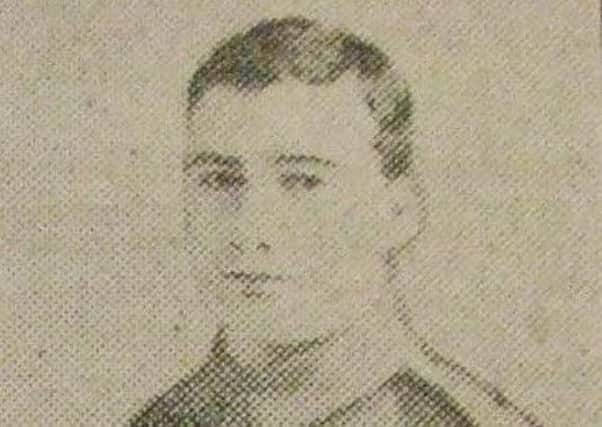Carrickfergus cousins killed in action just one day apart


Carrickfergus Great War Roll of Honour by John Stewart, which will be launched this evening in the town, profiles hundreds of men from the local area who paid the ultimate sacrifice during the global conflict.
Rifleman Andrew Haggan and Rifleman Edward Samuel Haggan were killed in action while serving in France, less than three years after they enlisted side by side.
Advertisement
Hide AdAdvertisement
Hide AdAndrew was born in Carrickfergus on April 8, 1896, the son of Andrew and Sarah Haggan (nee Knox) and brother of James, Agnes, Jane, Mary Ann, Joseph, Robert and Willie.


By the outbreak of war in 1914, he was living with his family in Davy’s Street and working as a labourer in the local mill.
A proud Unionist, Andrew signed the Ulster Covenant along with his father in Carrickfergus Court House on Ulster Day 1912.
He was an active member of both Woodburn Ebenezer LOL 787, the 3rd Battalion Central Antrim UVF and was part of the congregation at St Nicholas’ Church of Ireland.
Advertisement
Hide AdAdvertisement
Hide AdOn September 15, 1914, Andrew, along with his brother James, cousin Edward Samuel Haggan and over 100 others, turned up at Barn Mills School to enlist into the 12th Battalion Central Antrim Volunteers Royal Irish Rifles.


Following training, he was sent to the Western Front in October 1915 where he served with distinction in France and Flanders throughout 1916 and 1917.
Andrew was killed in action by a shell blast on August 15, 1917, aged just 21.
His body was never recovered and he is forever remembered on Panel 40 of the Menin Gate, Ypres.
Advertisement
Hide AdAdvertisement
Hide AdSadly, it was to be a double loss for the Haggan families with Andrew’s best friend, his cousin Edward, killed the very next day.


The two had grown up together, worked together, enlisted together, served together and died within hours of each other on the same battlefield.
Edward was born in Carrickfergus on June 24, 1897, the son of Thomas and Margaret Haggan (nee Caughey) and brother to Margaret, Nora, Thomas, William Mabel and Ezekiel.
Prior to the war, Edward lived in Castle Street, worked at Barn Mills flax mill and was a keen footballer and sportsman.
Advertisement
Hide AdAdvertisement
Hide AdPosted to France on active service in October 1915, Edward was wounded in action on May 11, 1916 and returned home for a short time to recover from his injuries.


He returned to the Western Front in March 1917.
Aged just 20, he was killed in action during the Battle of Langemarck on August 16, 1917.
His body was never recovered and he is remembered on Tyne Cot memorial.
The Battle of Langemarck had similar casualty figures to the Somme for the Ulster Division, ‘Roll of Honour’ notes.
Advertisement
Hide AdAdvertisement
Hide AdAfter the battle, General Oliver Nugent poured his heart out to his wife in an honest letter.
He wrote: “It has been a truly terrible day. Worse than 1st July, I am afraid. The whole division has been driven back with terrible losses. Our failure has involved the failure of the divisions on both sides of us and that is so bitter a pill.
“In July last year, we did our work but failed because the divisions on either flank failed us. This time it is our Ulster Division which has failed the army... I am heartbroken over it.”